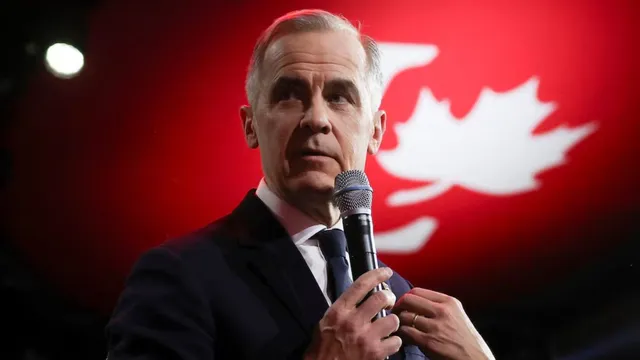- By Supratik Das
- Tue, 29 Apr 2025 12:30 PM (IST)
- Source:JND
Canada Elections 2025: Mark Carney's win in the Canadian federal elections and the Liberal Party's return to power have opened the way to a possible reset in India-Canada relations, which have been strained since 2023. A veteran central banker turned political novice, Carney has promised to put rebuilding relations with India at the top of his agenda, indicating a clear break from the divisive Trudeau years.
Emphasis On Trade And Diplomatic Reset
Carney's foreign policy strategy involves revitalizing the frozen Comprehensive Economic Partnership Agreement (CEPA) with India and opening up Canada's trade partnerships. In his campaign speech, the new Prime Minister stated, “There are opportunities to rebuild the relationship with India. If I am Prime Minister, I look forward to the opportunity to build that.” With two-way trade in services between the two countries touching CAD 13.49 billion in 2023, both countries have expressed interest in strengthening cooperation in emerging areas such as AI, green energy, fintech, and higher education. But diplomatic fallout had halted talks.
India-Canada relations reached an all-time low under the leadership of the previous Prime Minister Justin Trudeau, particularly after the Trudeau government blamed Indian agents for the murder of Hardeep Singh Nijjar, a Canadian national and pro-Khalistan radical, in June 2023. India dismissed the accusations as "baseless and politically motivated." The crisis further intensified in October 2024, when Canada expelled six Indian diplomats, for which India took retaliatory measures. Trade talks were put on hold, official visits suspended, and diplomatic communication came to a standstill.
India's Core Concerns: Security And Sovereignty
Mark Carney, 60, a former Governor of the Bank of Canada and Bank of England, has positioned himself as a practical leader with priorities on national sovereignty, economic diversification, and restoring global partnerships. He has condemned US trade pressures and stressed the importance of commercial partnerships grounded on common democratic values. In stark contrast to Trudeau, Carney said, "Different person, different policies, different approach to governing," implying a change in tone in foreign affairs, particularly with India.
The Indian government stands strong in its opposition to Khalistani separatism, which is an immediate threat to its territorial sovereignty. New Delhi has expressed concerns regarding Canada becoming a sanctuary for extremist activity, propaganda, and purported fundraising campaigns. During the Trudeau administration, Indian authorities repeatedly complained about the perceived inactivity of Ottawa, particularly after attacks on Hindu temples and inflammatory processions by Sikh separatist activists in Canada.
Indo-Canadian Diaspora: A Key Link
With more than 2.8 million Indo-Canadians, of whom 427,000+ are Indian students, the diaspora remains an important element in the bilateral equation. Even during the diplomatic freeze, immigration from India to Canada was robust under Trudeau; a line of policy Carney will be expected to carry on. Carney will most likely prioritize increasing channels for skilled workers, technology talent, and foreign students, in keeping with Canada's economic requirements and demographic objectives.
With both countries traversing a volatile global environment, an India-Canada diplomatic re-tuning could serve common interests. Carney's victory offers a chance to repair frayed wires and engage on common agendas—from education and innovation to trade and security. If Carney keeps his campaign commitments, New Delhi and Ottawa might find common ground for cooperation within a few months, initiating a more stable and strategic relationship.

